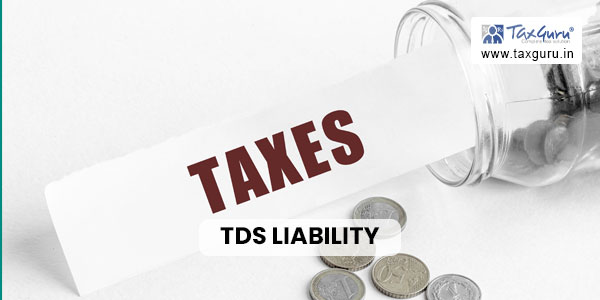Sponsored
Subex Limited Vs DCIT (Karnataka High Court); I.T.A No. 42 of 2017; 26/08/2022
No withholding liability on year end provisions if payees not identified and provision revered next year
In the Judgement passed by the Karnataka High Court in case of Subex Technologies Limited, Vs DCIT, Bangalore, it was held that no TDS liability would arise on year end provisions which were revered next year if they payees were not identified.
Facts of the case:
- The Assessee was a Public Limited Company in the business of providing software services and development of various products for Telecommunication Industry and has filed ‘Nil’ returns, after claiming deduction of Rs.8,37,98,696/- under Section 10(a) of the ITA and carried forward losses amounting to Rs.8,48,07,325. Subsequently, it filed a revised return showing income without claiming any carried forward losses.
- AO transferred the case to TPO and an order was passed by the DRP (dispute resolution party). ITAT upheld the relief granted by DRP except the year-end provisions made towards legal and professional charges.
Assessee’s contention:
- ITAT has failed to appreciate that the provisions made by the assessee was not identifiable with respect to the parties; in certain cases, the invoices for such services are not received by 31st March of the relevant year therefore the year-end provisions were made on an ‘estimate basis’. The same were subsequently reversed in the books of account on the first day of next year and following the KPTCL Vs. DCIT and Toyota Kirloskar Pvt Ltd. Vs. ITO judgement where it was held that no TDS is required for year-end provision which have been subsequently reversed.
- In the subsequent year when the account is credited, TDS has been made. Since TDS is a vicarious liability and not required unless there is an income in the hands of the payee as held in Eli Lily & Co, GE India Technologies, Bharti Airtel.
- It was further pointed out that if the income component itself is not embedded in the amount provided, then there cannot be any liability to deduct tax at the source.

- Any estimated provision made in the books does not attract Section 194J of the Act and in respect of payments to non-residents, TDS liability would require examination of applicable DTAA.
- Assessee had provided for ad hoc amount as year-end provisions. The actual amount of invoice which would be approved by the assessee could vary substantially, in the absence of definite credit to the account of the payee the liability to pay is not crystallized and therefore, TDS provision would not apply.
- Further the identity of payee was not certain as the actual recipient of professional charges was not identified at the stage when the provision was made.
Revenue’s contention:
- As per section 40(a)(ia) of the Act read with Section 194J Explanation(C), requires that tax has to be deducted at source when amount is paid or credited to the account of payee whichever is earlier.
- Though the assessee has credited in the books of account it has not deducted TDS and failure to deduct tax attracts disallowance under Section 40(a)(ia).
- TDS provisions applies not only to the amount paid, which bears the character of “income” but also to gross sums, the whole of which may not be income or profit in India in the hands of the recipient
Judgement:
- Karnataka Power Transmission Corporation Ltd. Vs. Deputy Commissioner of Income Tax (Supra), relied upon by the assessee, the Court had held that if no income is attributable to the payee there is no liability to deduct tax at source in the hands of the tax deductor.
- As held in the case of Kedarnath Jute Mfg. Co. Ltd, court had held that the existence or absence of entries in the books of accounts is not decisive or conclusive factor in deciding the right of the assessee claiming deduction.
- Further in the case of Volvo India Pvt ltd it was held that disallowance under section 40(a)(ia) would not be attracted if the deduction is not claimed for the expenditures made in the provision even in the return submitted and the same is offered to tax in the subsequent year after reversing the entries pursuant to the receipt of the bills/invoices by the payees, the matter has to be analysed having regard to, whether income has accrued to the payees to deduct tax at source
- And in the case of Palam Gas Service Vs. CIT (Supra) relied upon by the revenue, where it was held that taxes would have to be withheld it would be relevant to note that the payees have to be identified for the same. In contradistinction, in the present case the payee was also not identified.
The court upheld the assessee’s appeal and no disallowance was made on non-deduction of TDS on provision reversed.
Sponsored
Kindly Refer to
Privacy Policy &
Complete Terms of Use and Disclaimer.




